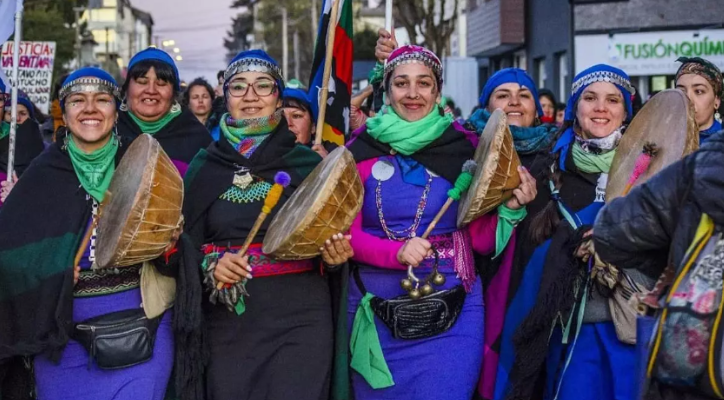The Marea Verde (Green Wave) is a feminist movement that emerged in Argentina and spread across Latin America, addressing gender-based violence (GBV), femicide, and reproductive rights. Symbolised by the green handkerchief, it achieved key victories like the legalisation of abortion in Argentina (2020), Colombia (2022), and Mexico (2023), reframing women’s safety and autonomy as central to human security. The movement has influenced international policy, driving GBV recognition in the United Nations (UN) Universal Periodic Review and shaping gender-sensitive approaches to conflict resolution, such as Colombia’s 2016 peace agreement. Despite significant opposition from conservative forces, religious institutions, and state pushback, the Marea Verde continues to grow, proving the transformative power of collective action in challenging systemic inequality and advancing a more just, inclusive future.
Roots of Empowerment: the Intersectionality of Indigenous Feminism
Indigenous feminism is a long-criticised term that still lacks a unified definition today. In a world in which intersectionality is at the very basis of every form of discrimination, native feminism fits into a framework practical for defining diverse types of battles held by indigenous women in the fight against gender and colonial discrimination, thereby tracing new roots of empowerment.



